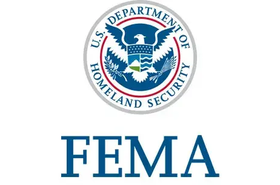The UK government has launched a tender worth up to £895 million ($1.1 billion) in its search for a new supplier for its Emergency Services Network (ESN).
This comes fresh off the back of the government removing previous provider Motorola Solutions from its list of strategic suppliers earlier this week. Motorola was previously awarded the vendor contract for the ESN, though this has since been withdrawn.
The tender notice was issued quietly this week, with the Home Office stating it was looking to create a contract that would see the supplier work in conjunction with other partners, including the main mobile services supplier EE.
Prospective bidders have up until June 19 to submit their tenders. The initial term of the contract lasts until the end of 2031, though there is the possibility of two 12-month extensions.
"There are more than 300,000 emergency service users who will rely on the system we are creating for their own operational safety and the welfare of the British public. The Emergency Services Mobile Communication Programme (ESMCP) is responsible for delivering the program and we need companies with high standards, who can work with us to provide the technical building blocks needed, and who believe in the significance of what we are creating in ESN," said the tender.
The successful bidder will play a prominent role in several areas, including program and project delivery, system integration, delivery of network and IT infrastructure that is a dedicated dual 4G/5G standalone mobile core network, and also the provision of a 3GPP-compliant solution for mission-critical services.
The ESN and its costly delays
First proposed in 2015, the ESN was meant to have been in use by 2020 for police, fire, and ambulance services in England, Scotland, and Wales, but has been hit by multiple delays.
The ESN is supposed to replace the aging Airwave system, which is the UK's current radio communications system for emergency services.
Airwave, which created the emergency services comms system currently in use, was bought by Motorola in 2016, with the vendor awarded the contract to underpin the ESN.
However, these delays led the Home Office to terminate the £400 million ($497m) contract with Motorola for the delivery of the core voice component of the ESN.
The controversial project has also been hit heavily by escalating costs, with the Home Office spending £2 billion ($2.5bn) on the ESN project so far, while spending £2.9bn ($3.6bn) to keep Airwave going
In March, the Home Office revealed it was unsure when the UK government’s 4G-based ESN will be ready after a report from the National Audit Office (NAO) found it could be delayed until 2029 or later. The report revealed that the Home Office paid out £45 million ($56m) to terminate its contract with Motorola Solutions two years early for the delivery of the core voice application for the ESN.
It was announced last month, following an investigation from the Competitions and Markets Authority (CMA), that Motorola has been forced to reduce by more than £1 billion ($1.25bn) its contracted price for the provision of the UK’s ESN in the coming years.
The CMA stepped in to impose the cap to stop Motorola from enforcing higher costs that are ultimately paid by taxpayers.
According to a post by the government, the price cap puts an end to the estimated £200 million ($249m) per year over-charging, noting that there will be a review held in 2026, but that the cap has been set to apply until the end of 2029.






